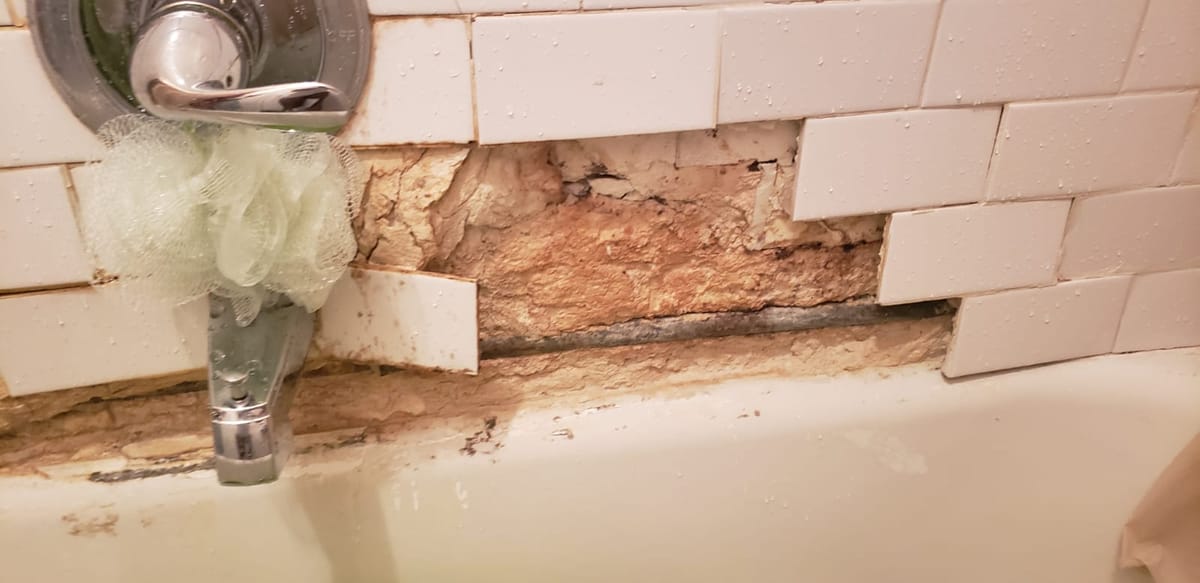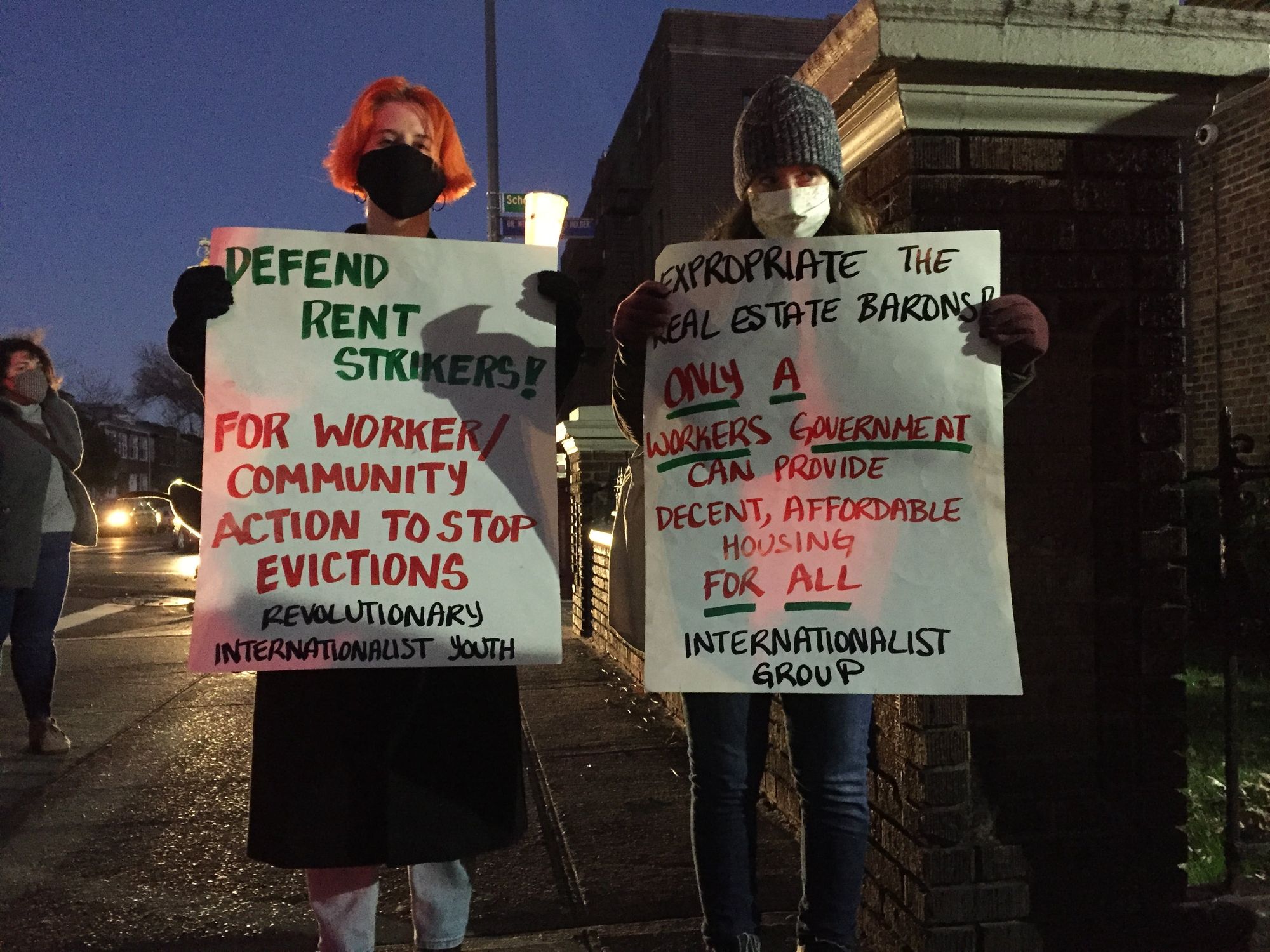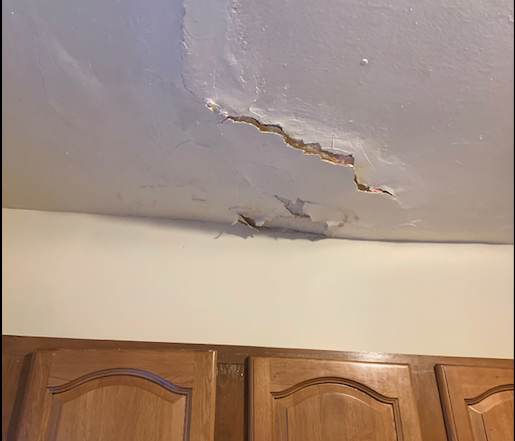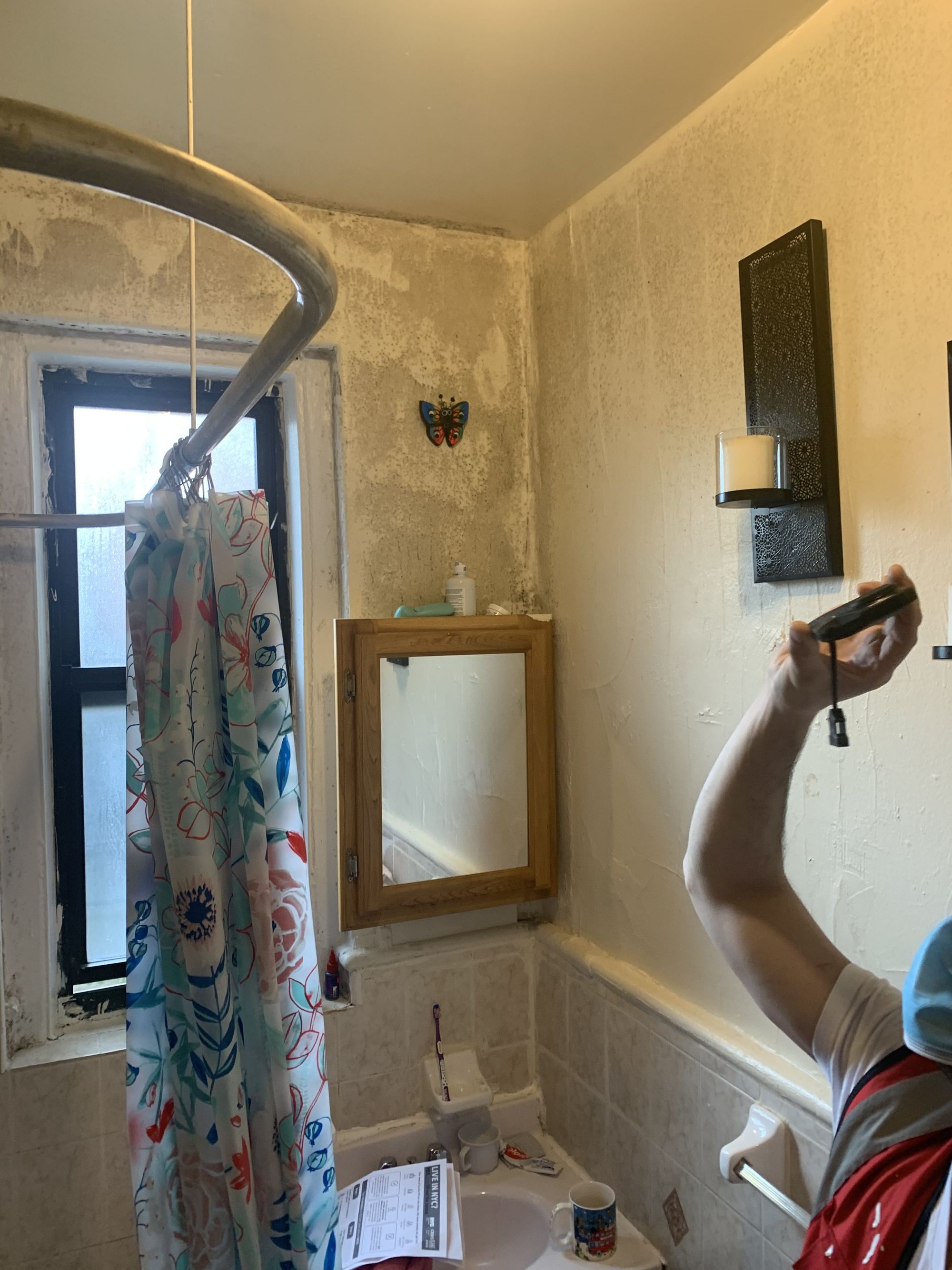City’s Worst Landlord Threatens Mass Eviction at Rent Striking Crown Heights Building, Says He Just Wants Them Back At The Negotiations Table


The city’s worst landlord warned tenants at one of his distressed properties in Brooklyn that they have 14 days to call off their rent strike and begin paying rent again, or they’ll face eviction. The tenants’ association at 1616 President St. declared the rent strike seven months ago to protest what they say are deplorable living conditions within the building and a years-long pattern of neglect by owner Jason Korn.
Korn was named the city’s worst individual landlord last year by Public Advocate Jumaane Williams, whose office publishes the annual Worst Landlords List to shame the city’s most notorious alleged slumlords into making vital repairs for their tenants. Korn’s 15 properties across the city carried an average of 2,877 open violations with the city’s Department of Housing Preservation and Development (HPD) in 2019.
State Senator Zellnor Myrie and State Assemblymember Diana Richardson joined neighbors and housing activists at a rally outside the Crown Heights building Wednesday evening to protest the mass eviction threat. At least 16 units in the 24-unit building have received the rent demand letters, according to an organizer at HOPE, the neighborhood tenant union that helped organize the strike.

Jemiah Johnson, who’s lived at 1616 President St. for about ten years, says her seven-year-old son was recently diagnosed with asthma, which Johnson worries was brought on by the building’s longstanding mold problem. She says at least three workers have come to fix the mold in her unit this past year alone, but the repair work is low-quality and doesn’t address the root cause of the problem, which tenants say is the building’s deteriorated plumbing.
“Me and my child are fighting for our lives,” said Johnson, who suffers from asthma herself. “My child is waking up three or four times in the middle of the night, struggling to breathe because of them. And [Korn] is sleeping in his bed comfortably.”
The city had placed 1616 President St. in its Underlying Conditions Program, which singles-out properties with a high number of leak and mold violations for enhanced enforcement from HPD in 2018. When the problems persisted, the building was placed into the Alternative Enforcement Program last year. Landlords with buildings singled out for alternative enforcement must make the most urgent repairs within four months, or the city can step in and then bill the owner.

While 1616 President St. was not included in the Alternative Enforcement Program in January 2020, indicating that all of the immediately hazardous HPD violations that caused it to be placed into the program had been addressed, the building continued to rack up new violations throughout 2019 and 2020. The property currently has 113 open HPD violations for issues like leaky plumbing, roach and rodent infestations, visible mold conditions, and lead paint. Eighteen of the building’s 113 open HPD violations are considered immediately hazardous.
The tenants formed a union in February and declared their rent strike in May. In their rent strike letter, they demanded that the management company clean common areas, fix the front door, give tenants access to security cameras and generally cease the pattern of “incomplete, shoddy repairs which inevitably cause tenants to make repeated calls for the same issue.”
Korn initially agreed to meet with the tenants’ association in late October but pulled out at the last minute, tenants say. The preliminary eviction notices began arriving last week.
Issuing tenants a 14-day notice, or what’s sometimes called a rent demand letter, is the first step for New York landlords starting an eviction case for nonpayment of rent. While an extension of the state’s Safe Harbor Act allows tenants to raise a COVID-related financial hardship defense in court and stave off a warrant of eviction through Jan. 1, 2021, housing courts in New York are open, and landlords can begin filing cases, which could result in money judgments against tenants.
Tenants with holdover cases or eviction cases brought for reasons other than nonpayment of rent, and tenants who cannot prove a pandemic-related financial hardship, are not explicitly protected under the Safe Harbor Act. Some of the 1616 President St. renters have been threatened with a holdover eviction for denying workers access to their units during the pandemic, according to a HOPE spokesperson.

Vincia Barber, who helped form the tenants’ association, said the building’s management company, Lilmor Management, has been contacting individual tenants since the strike began and offering repairs in exchange for rent. Barber explained that the tenants’ association wants Korn to negotiate with them collectively and to solve the building’s extensive underlying problems rather than cutting deals with individual renters for more patchwork repairs.
Korn’s attorney, Josh Rosenblum, said that his client is willing to deal with the tenants as a collective, but that they’ll have to work out deals with tenants individually because different units need different repairs and owe different amounts of back rent. He said he had not received a list of needed repairs or dates when workers can access the units from the tenants’ attorneys at Brooklyn Legal Services.
He also said that the goal of the 14-day notices is to restart negotiations, which have broken down, rather than to evict all of the tenants on rent strike.
“We literally have no choice but to proceed with litigation papers. Even if we serve these rent demand notices, the hope would be that that would trigger them to come to the table,” said Rosenblum.
Neighbors at 776 Crown St. and 575 Herkimer St., also both owned by Korn, have recently formed their own tenants’ associations. The 1616 President St. renters have been meeting with residents of the nearby Korn-owned buildings, which also have dozens of open HPD violations, and encouraging them to join the strike and boost their collective bargaining power.
“We are fed up, and we’re not going to take it anymore,” said Angela Robinson, who moved into 1616 President St. in 2003. In her time there, she says a ceiling has collapsed above her, causing her to need surgery on her knee, and that she once went eight months without a kitchen sink. “One by one, we’re going to break this guy down.”




